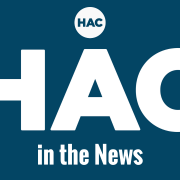Contact:
Office of Public Affairs, publicaffairs@arts.gov, 202-682-5570
Evelyn Immonen, evelyn@ruralhome.org, 202-842-8600
Twenty-three Rural Communities Receive Design Assistance From National Endowment for the Arts
Washington DC, September 10, 2019—In its ongoing support of rural communities, the National Endowment for the Arts announces the 2019 communities taking part in its national initiative, the Citizens’ Institute on Rural Design™ (CIRD). New this year, the Arts Endowment is expanding CIRD’s offerings to include a peer-learning component for rural leaders from 23 communities. These leaders will receive training in rural design and creative placemaking as well as support in navigating funding opportunities to make their communities better places to live, work, and play. Along with the peer-learning component, CIRD will conduct its traditional community design workshops in three new places: Millinocket, Maine; Pueblo of Laguna, New Mexico; and Athens, Ohio.
This year is the first with initiative partners the Housing Assistance Council (HAC) and buildingcommunityWORKSHOP [bc]. This year also marked a record for the initiative with 85 applications received, the highest in the program’s history.
”It was inspiring to see overwhelming interest in the Citizens’ Institute on Rural Design program this year,” said Arts Endowment Director of Design and Creative Placemaking Jen Hughes. “Rural and tribal communities across the country are putting forth ambitious visions for their future and view design and creative placemaking as a way to not only celebrate their cultural history, but also to drive economic development.”
Since 1991, CIRD has worked in communities with populations of 50,000 or less to enhance quality of life and economic viability through planning, design, and creative placemaking. To date, the Arts Endowment has convened more than 80 workshops in all regions of the country, bringing together local residents with teams of design, economic development, and creative placemaking professionals. Together, professionals and citizens leverage local and regional assets to guide the design of their communities.
The multi-day design workshops in the three selected communities will focus on different challenges. Dates for each workshop and members of the resource team are forthcoming.
Millinocket, Maine (population 4,400): The residents of Millinocket, located near Maine’s Mount Katahdin, have mobilized around sustainability, mental health/wellness, and diversifying the town’s economic base after the departure of the paper industry. The goal is to create a design principles guidebook that will inform downtown revitalization plans and be used by local businesses to help create a unified sense of place.
Pueblo of Laguna, New Mexico (population 1,241): The Pueblo is developing an ambitious master plan for the Village of Laguna (one of six in the Pueblo) that seeks to address longstanding challenges, including a dearth of affordable housing and the need for both walkability and commercial space that builds on indigenous cultural assets such as artisanship and arid-land farming. The University of New Mexico’s Indigenous Design + Planning Institute will join local institutions to support the workshop.
Athens, Ohio (population 23,832): Mt. Zion Baptist Church Preservation Society wants to preserve and reimagine the use of a century-old church built by free-born and formerly enslaved black artisans. In addition to architectural rehabilitation, the Preservation Society and its partners envision the place as an economic engine and as a hub for black history and culture.
In addition to these three communities, 20 additional communities will form the inaugural peer-learning cohort and will meet for a Rural Design Summit in West Virginia, October 9-11, 2019:
[tdborder][/tdborder]
|
Organization
|
City
|
State
|
|
City of Eufaula
|
Eufaula
|
AL
|
|
Eastern Sierra Artists
|
Bishop
|
CA
|
|
Dancing Spirit Community Arts Center
|
Ignacio
|
CO
|
|
Huerfano County Economic Development, Inc.
|
Walsenburg
|
CO
|
|
Economic Council of Okeechobee County, Inc.
|
Okeechobee
|
FL
|
|
Sebring Community Redevelopment Agency
|
Sebring
|
FL
|
|
action pact
|
Waycross
|
GA
|
|
Thrive Allen County, Inc.
|
Iola
|
KS
|
|
Kentucky Valley Educational Cooperative
|
Hazard
|
KY
|
|
Snow Pond Center for the Arts
|
Sidney
|
ME
|
|
City of Excelsior Springs
|
Excelsior Springs
|
MO
|
|
McComb Creative Economy Partnership
|
McComb
|
MS
|
|
Clay County Historical and Arts Council
|
Hayesville
|
NC
|
|
Divide County Economic Development Council, Inc.
|
Crosby
|
ND
|
|
Woodward Arts & Theatre Council, Inc.
|
Woodward
|
OK
|
|
City of San Elizario
|
San Elizario
|
TX
|
|
Town of Scottsville
|
Scottsville
|
VA
|
|
Shenandoah County Office of Economic Development
|
Shenandoah County
|
VA
|
|
NCW Economic Development District
|
Entiat
|
WA
|
|
Laramie Main Street
|
Laramie
|
WY
|
For more information about the Citizens’ Institute on Rural Design go to the initiative’s web page.
About the National Endowment for the Arts
Established by Congress in 1965, the National Endowment for the Arts is the independent federal agency whose funding and support gives Americans the opportunity to participate in the arts, exercise their imaginations, and develop their creative capacities. Through partnerships with state arts agencies, local leaders, other federal agencies, and the philanthropic sector, the Arts Endowment supports arts learning, affirms and celebrates America’s rich and diverse cultural heritage, and extends its work to promote equal access to the arts in every community across America. For more information, visit www.arts.gov.
The Housing Assistance Council (HAC) is a national nonprofit that strengthens communities across rural America through investment and assistance with affordable housing and community and economic development. Based in Washington, DC, HAC is actively involved in shaping federal policy and the affordable housing industry with its research, lending and conferences. We also deliver technical assistance, training and affordable loans to local organizations that help rural communities prosper.
buildingcommunityWORKSHOP ([bc]) is a Texas based nonprofit community design center seeking to improve the livability and viability of communities through the practice of thoughtful design and making. We enrich the lives of citizens by bringing design thinking to areas of our cities where resources are most scarce. To do so, [bc] recognizes that it must first understand the social, economic, and environmental issues facing a community before beginning work.
###


